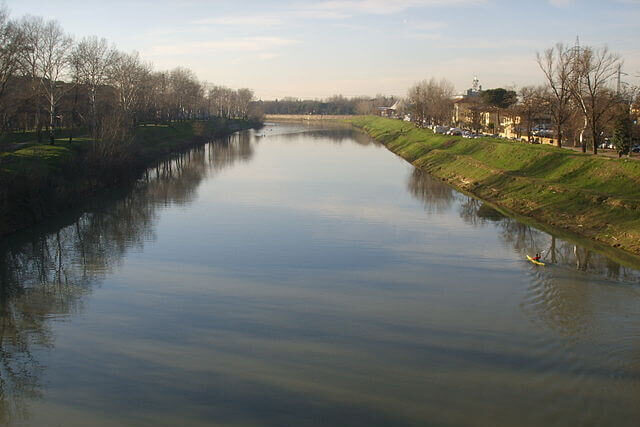
Dredging, sewage, and pollution pose “multiple threats” to England’s coast.
The Environment Agency paints a grim picture of how people and eco-systems along the coast are being put under more stress.
The Environment Agency has issued a warning that dredging is likely to increase around the English coast, as pollution and sewage are increasing pressure on coastal ecosystems and putting more people at risk of coastal flooding.
According to the agency’s chief scientist’s group’s report, three-quarters of England’s shellfish waters failed to meet “aspirational” environmental protection standards in 2021.
After a mysterious large die-off of crabs and lobsters was recorded in the area of Teesside on the north-east coast in the fall of 2021, dredging and pollution have come under more scrutiny. Although some scientists have criticized the findings, a report that was published last week found that dredging was unlikely to be the cause of the die-offs, suggesting that an unknown new pathogen may have been to blame.
Fewer than a fifth of the UK’s estuaries are deemed to be in a good ecological condition, according to the EA report, which paints a grim picture of England’s coastal regions. According to the report that was released on Thursday, only 45 percent of the marine areas that were evaluated met the standard in 2021.
In 2019, nearly half of the coastal waters and more than nine out of ten of the estuaries that were sampled had nitrogen levels that were too high. Agricultural runoff and sewage can pollute the environment with nitrogen, which can lead to harmful algae blooms that smother seagrass and saltmarsh and kill marine life.
About 100,000 people were at risk of significant coastal flooding, according to the report, which found that storms had caused “widespread damage to coastal defenses, properties, and infrastructure.”
According to the report, the climate crisis was causing wetlands to dry out and sand dunes to disappear due to erosion. Since the 1800s, approximately 85% of England’s salt marshes, a significant carbon store, have disappeared, as have approximately half of the seagrass meadows and 95% of the native oyster population.
In addition, many people living along the coast are struggling financially. The Environment Agency’s chairman, Alan Lovell, told the Coastal Futures conference on Thursday morning that coastal towns in the UK were among the most deprived.
“We need to work together with coastal communities to identify the best possible way to keep them safe and prosperous,” he said. “We need a concerted effort to better protect coastal communities and economies while enhancing the marine environment.”
Lovell said that more than a third of people in the UK live within 3 kilometres (1.9 miles) of the coast. He stated that while some progress had been made in combating the numerous threats to the coastal environment, such as a plan to restore 15% of coastal and estuarine habitats considered to be priority areas by 2043, there was still a significant amount of work to be done.
According to the report, approximately 1,200 hectares (2,965 acres) of salt marsh and mudflats have been created since 2005. Overfishing has also decreased, with approximately half of stocks fished at sustainable levels in 2019 compared to approximately 10% in 1990.
Charles Clover, executive director and co-founder of the Blue Marine Foundation, said that was still far from good enough. “The ocean faces numerous threats, and this report highlights that one of the largest is simply removing far too many fish from the sea – collapsing stocks and preventing recovery. The report also stresses the important role that the seabed can have in storing carbon, yet in the UK trawling is allowed in most of our so called protected areas.”
Rebecca Newsom, head of politics at Greenpeace UK, called for urgent action and stricter regulation. “Our seas are facing a perfect storm of rising temperatures, sewage discharges, plastic and chemical pollution and destructive industrial fishing. This is an existential threat to both marine life and the communities that depend on healthy seas for their survival,” she said.
“What we need are legally binding targets to cut single use plastic in half by 2025, a full and immediate ban on destructive fishing in all marine protected areas, and stricter penalties for water companies responsible for the sewage scandal,” she added. “The time for rearranging deckchairs is over – we need a joined-up, ambitious and properly funded plan from this government and we need it now.”
——————————————————————————
At Natural World Fund, we are passionate about stopping the decline in our wildlife.
The declines in our wildlife is shocking and frightening. Without much more support, many of the animals we know and love will continue in their declines towards extinction.
When you help to restore a patch of degraded land through rewilding to forests, meadows, or wetlands, you have a massive impact on the biodiversity at a local level. You give animals a home and food that they otherwise would not have had, and it has a positive snowball effect for the food chain.
We are convinced that this is much better for the UK than growing lots of fast-growing coniferous trees, solely to remove carbon, that don’t actually help our animals to thrive.
This is why we stand for restoring nature in the UK through responsible rewilding. For us, it is the right thing to do. Let’s do what’s right for nature!
Support our work today at https://naturalworldfund.com/ and join in the solution!


Very nice post. I just stumbled upon your blog and wished to say that I’ve really enjoyed browsing your blog posts. After all I will be subscribing to your rss feed and I hope you write again soon!